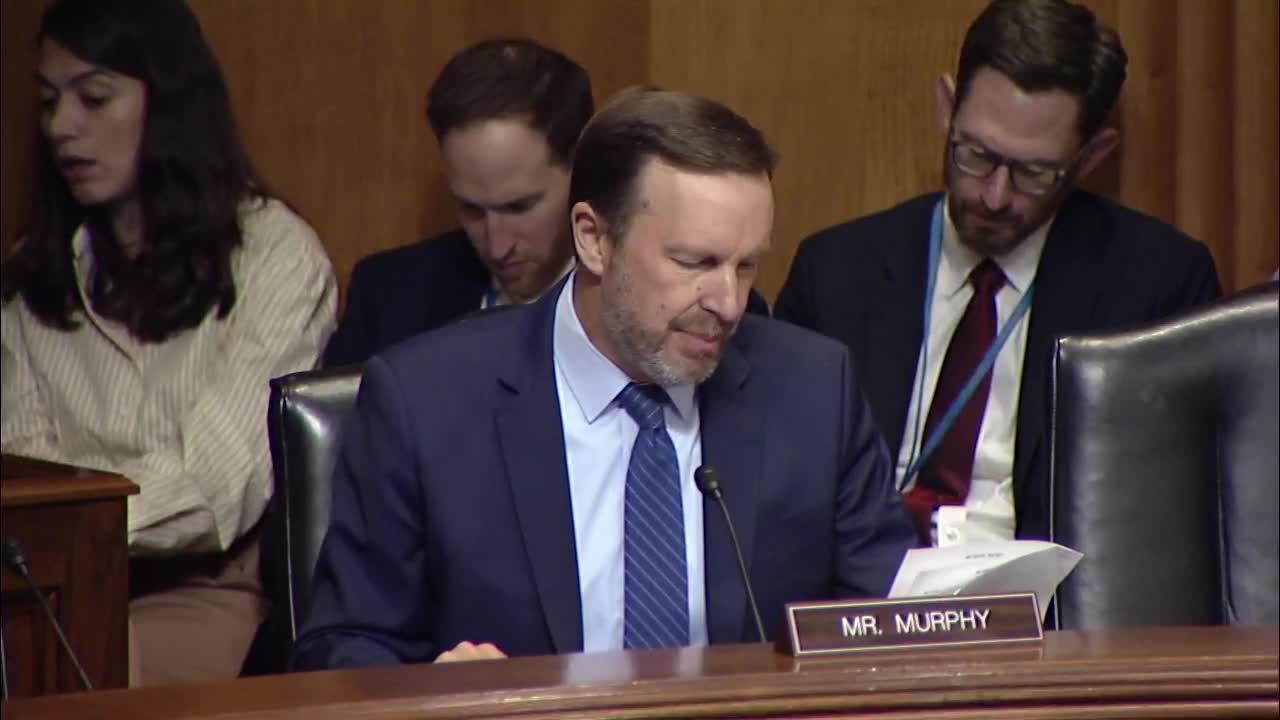Senate Hearing Raises Concerns Over Refugee Policy Favoring White Afrikaners
September 11, 2025 | Foreign Relations: Senate Committee, Standing Committees - House & Senate, Congressional Hearings Compilation
This article was created by AI summarizing key points discussed. AI makes mistakes, so for full details and context, please refer to the video of the full meeting. Please report any errors so we can fix them. Report an error »

During a recent nomination hearing held by the U.S. Senate Committee on Foreign Relations, significant discussions emerged regarding the responsibilities of political leaders in condemning hate speech and the implications of the administration's refugee resettlement policies.
One of the most pressing topics was the moral obligation of leaders to speak out against racism and hate speech. A senator raised concerns about a previous statement made in 2018, questioning whether political leaders have a duty to condemn such actions. The nominee acknowledged the importance of addressing hate speech but emphasized that it is ultimately a judgment call for political leaders. This exchange highlighted the ongoing debate about the role of leadership in combating hate and the potential consequences of silence in the face of incitement.
Another critical issue discussed was the administration's plan to cap refugee resettlement at 40,000 to 60,000 for the upcoming year, with a significant portion of this quota expected to be filled by white Afrikaners from South Africa. This decision raised alarms among committee members, who expressed concern over the message it sends regarding racial and ethnic diversity in the U.S. refugee program. The nominee clarified that while he had not been involved in the decision-making process, he would support a fair and lawful approach to refugee admissions if confirmed.
These discussions reflect broader community concerns about leadership accountability and the values guiding U.S. immigration policies. As the nation grapples with issues of race and inclusion, the outcomes of this hearing could have lasting implications for how the U.S. positions itself on the global stage and addresses the needs of diverse populations seeking refuge. The committee's deliberations will continue to shape the conversation around these critical issues, emphasizing the importance of thoughtful and inclusive governance.
One of the most pressing topics was the moral obligation of leaders to speak out against racism and hate speech. A senator raised concerns about a previous statement made in 2018, questioning whether political leaders have a duty to condemn such actions. The nominee acknowledged the importance of addressing hate speech but emphasized that it is ultimately a judgment call for political leaders. This exchange highlighted the ongoing debate about the role of leadership in combating hate and the potential consequences of silence in the face of incitement.
Another critical issue discussed was the administration's plan to cap refugee resettlement at 40,000 to 60,000 for the upcoming year, with a significant portion of this quota expected to be filled by white Afrikaners from South Africa. This decision raised alarms among committee members, who expressed concern over the message it sends regarding racial and ethnic diversity in the U.S. refugee program. The nominee clarified that while he had not been involved in the decision-making process, he would support a fair and lawful approach to refugee admissions if confirmed.
These discussions reflect broader community concerns about leadership accountability and the values guiding U.S. immigration policies. As the nation grapples with issues of race and inclusion, the outcomes of this hearing could have lasting implications for how the U.S. positions itself on the global stage and addresses the needs of diverse populations seeking refuge. The committee's deliberations will continue to shape the conversation around these critical issues, emphasizing the importance of thoughtful and inclusive governance.
View full meeting
This article is based on a recent meeting—watch the full video and explore the complete transcript for deeper insights into the discussion.
View full meeting